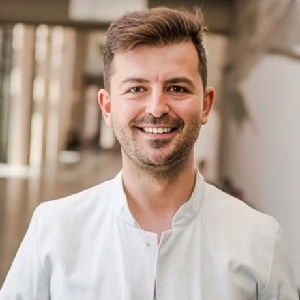
Serhat Yuksel
Ruhr University Hospital, GermanyPresentation Title:
Endometrial cancer: Evolution of diagnosis and treatment strategies with focus on ESGO/ESTRO/ESP Guidelines 2025
Abstract
Endometrial cancer is the most common gynecologic malignancy in developed countries, with incidence steadily increasing due to aging populations, obesity, and metabolic risk factors. Over the past decades, both diagnostic and therapeutic strategies have undergone significant refinement, driven by advances in molecular classification, surgical innovation, and evidence-based adjuvant therapy concepts.
Traditionally, staging and treatment decisions were primarily based on FIGO stage, histological grade, and clinicopathological features. However, the introduction of molecular profiling—particularly the identification of POLE mutations, MMR deficiency, and p53 abnormalities—has reshaped risk stratification and therapeutic pathways. Sentinel lymph node mapping and minimally invasive surgical approaches have become standard, reducing morbidity without compromising oncological safety.
The updated ESGO/ESTRO/ESP guidelines (2025) provide a comprehensive, multidisciplinary framework for diagnosis, surgical management, and adjuvant therapy. These guidelines integrate molecular classification into routine clinical practice, refine the use of systemic therapy in advanced and recurrent disease, and emphasize the role of multidisciplinary tumor boards in optimizing patient-centered care.
This presentation will review the historical development of endometrial cancer management, highlight the paradigm shift introduced by molecular classification, and provide an overview of the 2025 ESGO/ESTRO/ESP recommendations. Special attention will be given to challenges in clinical implementation, balancing standardized guideline-based treatment with personalized therapy, and perspectives for future innovation.
Biography
Serhat Yuksel is from the Department of Obstetrics and Gynaecology, Ruhr University Hospital, Minden, Germany. He received his medical degree from Dokuz Eylul University, Izmir, Turkey, and has been working in Germany since 2017. His clinical and research interests include gynecologic oncology, minimally invasive and robotic surgery, and innovative approaches to the management of endometrial and breast cancer. He has actively participated in national and international congresses and advanced training courses. Alongside his clinical training, he is pursuing a Master of Health Business Administration (MHBA), with a focus on healthcare economics and cost-effectiveness in oncology. His current doctoral thesis investigates AI-supported tumor board recommendations in endometrial cancer, aiming to bridge clinical practice with digital innovation.


